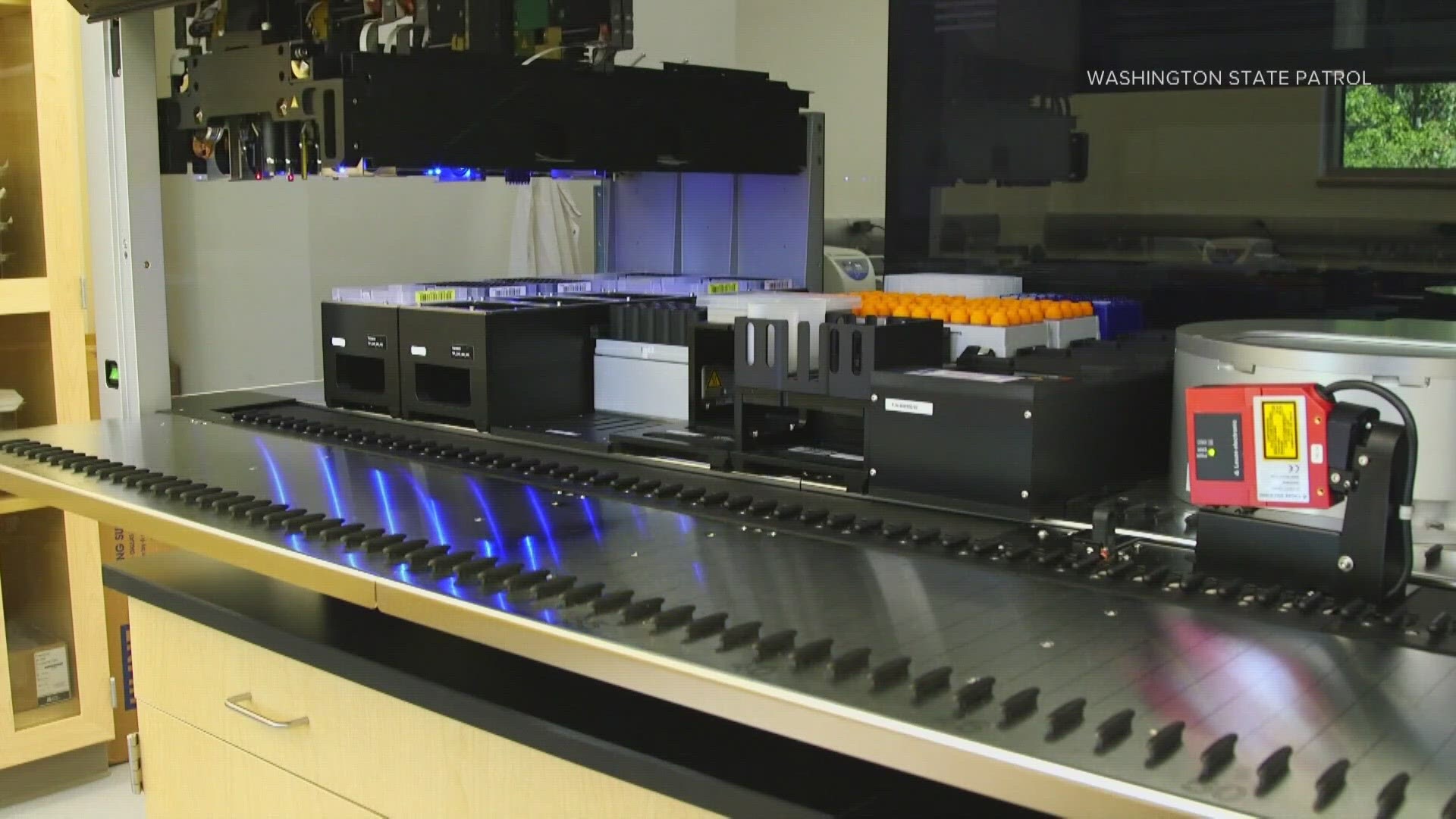SEATTLE — The Washington Attorney General's Office recently announced the collection of DNA samples from thousands of the most serious offenders who failed to submit them.
State law requires offenders convicted of certain crimes to submit their DNA to put into CODIS, a nationwide database. The AG's office found thousands of offenders failed to do so and have been working to close the gap and bring answers to families of unsolved crimes.
"This has haunted our family for 30 years," said Nicole Petersen, the cousin of Mistie Micheletti, whose killer has never been found.
On Jan. 15, 1994, 11-year-old Mistie was taken from her Vancouver, Wash. home while her mother was working a night shift. Her brother told authorities he saw a man come in through a window, was scared and pretended to be asleep. He later realized Mistie was missing. Her body was found two days later by fishermen in the Columbia River.
"This person who has done this needs to pay. There needs to be justice, there needs to be answers, and this person needs to be held accountable," Petersen said.
Petersen has been working for years to find answers.
"I made a commitment, actually five years ago, to my immediate family, to my husband, my children, that I would not stop and until justice is brought to Mistie," Petersen said.
The chance of that is growing. The AG's office tracked down 2,681 DNA samples from offenders convicted of sex crimes and serious violent crimes.
"I am sitting on pins and needles. Our family is sitting on pins and needles," Petersen said.
"You're convicted of a serious crime, your DNA needs to be put into a database and it's not happening in a systematic way. It's critically important to get that DNA to solve crimes," said Washington Attorney General Bob Ferguson.
Local law enforcement and court systems are required to collect DNA once someone is convicted of certain crimes, but that doesn't always happen.
"Some of them are right away, you’re sentenced, and right there in court, they collect the DNA, but that’s the exception so often folks are released, they served time and released, and DNA is never collected," Ferguson said.
It's something the AG's office realized four years ago and has been working to fix.
"They have to comb through court records all across the state to see if someone had a conviction that required them to provide DNA. Did they actually provide it? If not, can we find them? Are they still in the state? Are they still alive?" Ferguson said.
There are still an estimated thousands of offenders from whom they need samples, some going back decades.
"Many of these perpetrators that commit these egregious crimes, especially against children, that don't just do it once," Petersen said.
Petersen said Micheletti's case could be solved by someone finally coming forward or getting a DNA match, and now more hopeful this could lead to the answers she's been praying for.
"When those matches are compared and made, that hopefully, our person will be found," Petersen said.
The AG's office said the project had had 97 hits since it launched four years ago. They will now start collecting samples from offenders convicted of other crimes, such as felony assault and robbery.

